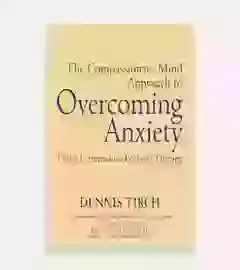How Can I Help Myself?
Some people are very sensitive to worries and anxieties, while others seem a lot more robust. Understanding 'why me?' can put the problem in perspective and also help you to see where changes need to be made in your lifestyle, outlook and attitudes. There are various 'risk factors' that may make you more prone to anxiety problems.
Personality type is a rather controversial factor, but many agree that certain characteristics seem to be linked to anxiety-related problems. 'Type A' personalities have been identified by cardiologists as having an increased risk of high blood pressure and other stress-related symptoms. These personalities are characteristically competitive and ambitious, with a tendency to ignore symptoms of stress. However, it has also been found that such people are able to change their behaviour and so reduce the problems they previously experienced.
Studies have shown that anxiety disorders can run in families, although it's difficult to know whether this is caused by genetic factors or whether it's a result of family members communicating behaviour to each other. But, even if there is a strong trend in your family, this doesn't mean it is not possible for you to overcome a tendency to worry.
Emotional and psychological problems are often linked with stressful life events, such as an accident, or with long-term stresses such as illness or financial problems. A life event does not have to be unpleasant to cause stress: any change that requires readjustment - such a moving house, or a new baby - can be stressful. Life events in the past, such as childhood trauma, can also affect the way we respond to situations in the present.
People with a psychological tendency towards biased thinking (see above) are more at risk of developing anxiety-related problems. Mood also affects the way we see things: if we are unhappy we are more likely to be prone to distort or biased thinking.
There are various coping strategies that may be developed to help manage anxiety. Some, such as comfort eating and drinking, are not helpful in the long term, while others (see below) are positive. These skills and strategies can help to change your susceptibility to anxiety problems.
Another strong factor in our vulnerability to psychological problems is the degree of social support we have. The greater our social support, the more protected we are against trauma and stress, so your risk of developing worries and anxieties can be modified by a change in your social situation. An ideal social support network is a combination of non-intimate friendships and close friends.
Our vulnerability to anxiety is usually determined by a combination of elements rather than a single factor. Developing an overview of your personal situation can help to identify your own risk factors and the maintaining cycles (see above) that apply to you. Your problems will make sense in the context of your own history and current situation. Most people, at some time in their lives, experience levels of fear or anxiety that cause difficulties - at any given time, one in ten people are suffering from an anxiety disorder. Often this is temporary, but sometimes help is required to reverse the changes.




























